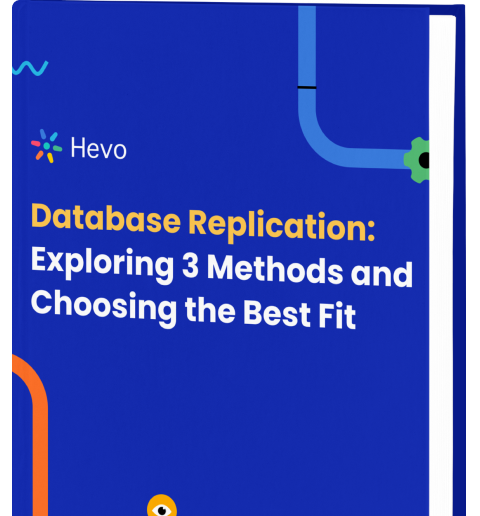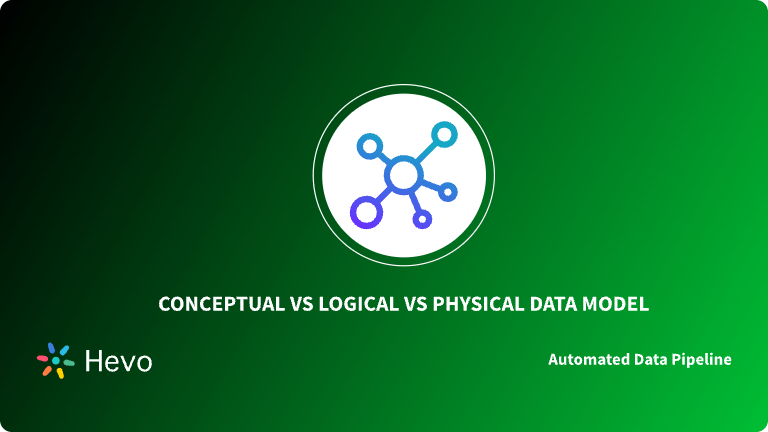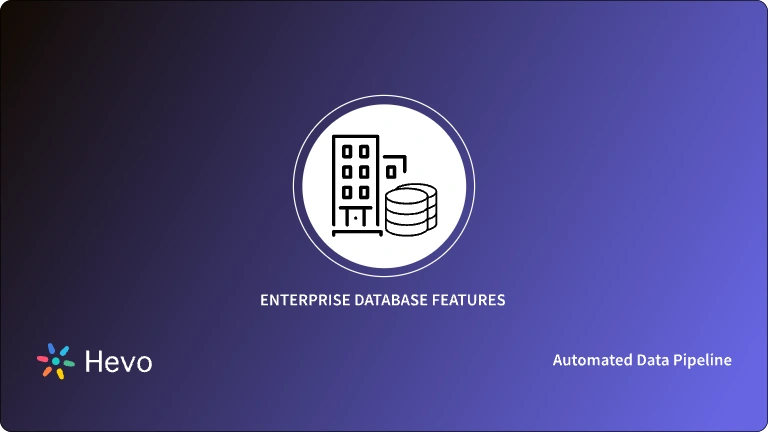As organizations become more data-driven, incorporating the best databases has become crucial to differentiate in the competitive market. With several types of databases available in the market, it becomes strenuous for companies to assess and implement the one that can streamline the data flow. What makes it even more challenging for organizations is the rapid improvements and changes in databases with every new update.
This article will provide you with a comprehensive list of the best databases available in the market, allowing you to make a decision on which database is best for your business and data requirements. As a bonus, you can also review some tips on selecting the best database software for your organization.
Table of Contents
The 12 Best Databases
The 12 best databases available in the market are as follows:
- Best Databases In Marketplace: MySQL
- Best Databases In Marketplace: PostgreSQL
- Best Databases In Marketplace: Microsoft SQL Server
- Best Databases In Marketplace: MongoDB
- Best Databases In Marketplace: Oracle
- Best Databases In Marketplace: Remote Dictionary Server (Redis)
- Best Databases In Marketplace: Elasticsearch
- Best Databases In Marketplace: Cassandra
- Best Databases In Marketplace: MariaDB
- Best Databases In Marketplace: IBM DB2
- Best Databases In Marketplace: SQLite
- Best Databases In Marketplace: Amazon DynamoDB
Exploring the best databases for 2025? Hevo makes it simple to migrate data from any of these top databases to your desired destinations. Our no-code platform automates data pipelines, ensuring smooth and efficient data transfer.
Why Use Hevo?
- Broad Database Support: Seamlessly connect with a wide range of databases and load data to your preferred destinations.
- Automated Data Migration: Reduce manual effort with automated data syncing and transformation.
- Real-Time Data Flow: Keep your data up-to-date and ready for analysis.
Don’t just take our word for it – see why we’re rated 4.3/5 on G2.
Try Hevo for Free and Migrate Your Data Today1) MySQL
MySQL was launched in 1995 by Michael Widenius, Allan Larsson, and David Axmark. It is an Open-Source Relational Database Management System (RDBMS) based on the Structured Query Language (SQL), which is available under the GNU General Public License but also comes with proprietary licenses.
It enables innovative Database Administrators and Software Developers to build and deploy the next-gen Web, Embedded, Mobile, and Cloud Software-as-a-Service (SaaS) / Platform-as-a-Service (PaaS) / Database-as-a-Service (DBaaS) applications on the latest development frameworks and hardware platforms.
MySQL is a highly scalable database system that can run on multiple platforms, such as Linux, Windows, and Unix. Some of the key features of MySQL are as follows:
- MySQL is extremely easy to deploy and manage.
- It supports ACID (Atomicity, Consistency, Isolation, Durability), thereby making it the most reliable.
- This Relational Database Management System (RDBMS) offers fast-loading utilities with different memory caches to maintain and administer Servers.
- MySQL can be configured with any programming language but mainly uses PHP.
- It offers high-performance results without compromising essential functionalities.
- It provides complete security for the data as it consists of solid Data Security layers. Only authorized users can access the database using encrypted passwords.
2)PostgreSQL
PostgreSQL is a free and open-source object-relational database management system (ORDBMS) that emphasizes extensibility and SQL compliance. It was developed by Michael Ralph Stonebraker in 1996. It is compatible with several operating systems, including Windows, Linux, MacOSX, Unix, etc.
PostgreSQL houses numerous features, such as Inheritance and Function Loading, that make it one of the best databases available. These features are used to enhance the extensibility, reliability, and data integrity while handling data. It comes with various data types and robust feature sets that allow businesses to achieve their data-handling objectives. The key features of PostgreSQL are as follows:
- It houses numerous constraints that can ensure Data Integrity. These constraints include Primary Keys, Foreign Keys, Explicit Locks, Advisory Locks, and Exclusion Constraints.
- It supports various features of SQL, such as Multi-Version Concurrency Control, SQL Sub-selects, complex SQL queries, Streaming Replication, etc.
- It is compatible with multiple data types, including Structured, Primitives, Customizations, Geometry, and Documents.
- It is highly extensible in several phases like JSON/SQL path expressions and Stored procedures and functions.
3) Microsoft SQL Server
Microsoft SQL Server was developed by Microsoft Corporation in 1989. It is now considered to be an excellent Relational Database Management System (RDBMS) for both On-premise and Cloud environments. With its robust enterprise database features and support for enterprise database architecture, this agile database offers built-in intelligence that allows businesses to scale performance, availability, and security seamlessly based on their requirements. It is available on both Windows and Linux platforms.
Microsoft SQL Server is identical to Sybase SQL Server 4.2. This is because their basic architecture process and Transact-SQL Procedural languages are similar. This database has several competitive features that secure it a unique place in the analytics industry. Some of these features are as follows:
- Microsoft SQL Server and other Big Data tools can be used to build a superior shared Data Lake.
- It allows users to gain insights by querying across their entire dataset without moving or replicating their data.
- It comes with built-in features for Data Classification, Protection, and Monitoring, as it identifies and provides alerts on suspicious activities, security gaps, and misconfigurations.
- It supports Structured, Semi-structured, and Spatial data.
- It comes with custom-built graphical integration and allows users to create various designs and tables and view data without syntax.
- It allows users to combine data from any source by harnessing an extensive connector library and new transformations in the Microsoft SQL Server Analysis Services (SSAS) Tabular Model.
4) MongoDB
MongoDB is an open-source document-oriented database that is used to store high-volume data and was founded in 2007 by Dwight Merriman, Eliot Horowitz, and Kevin Ryan. MongoDB is a scalable, flexible database platform that overcomes the relational database approach. It provides users an unparalleled level of flexibility by horizontal scaling and load balancing capacities.
MongoDB is suitable for hierarchical data storage and is almost 100 times faster than a Relational Database Management System (RDBMS). This platform centers around the CAP theorem (Consistency, Availability, and Partition tolerance.)
MongoDB offers developers several out-of-the-box capabilities, irrespective of where it is published (privately on-site or in the public cloud). Some features are as follows:
- It is highly scalable. Numerous companies across industries leverage MongoDB to create Clusters with more than 100 nodes and millions of documents within the database.
- It offers high availability with replica sets.
- It is very flexible and adaptable as it stores the data in the documents.
- In case of hardware failure, it can run over multiple Servers, balancing the load or duplicating data to keep the system running.
- The data model available within this database platform enables users to represent hierarchical relationships, store arrays, and other complex structures seamlessly.
5) Oracle
Oracle Database is a widely used Relational Database Management System (RDBMS) across industries. It is one of the most popular databases since it is considered to be a cost-optimizing and high-performance solution. It is the only converged enterprise relation database in the industry. Oracle Database supports Structured Query Language (SQL) to interact with the database.
This multi-model Relational Database Management System (RDBMS) was primarily designed for Enterprise Grid Computing. After the success of its 19C database, Oracle Database 21C was released in 2021, which brings wide-ranging capabilities like Multi-workload Improvement with AutoML.
Oracle Database is among the most widely used databases in the industry as it supports all data types involving Relational, Graph, Structured, and Unstructured information and is hence considered to be one of the best databases available in the market. The key features of Oracle Database are as follows:
- It houses numerous features such as Real Application Clustering and Portability, making this Relational Database Management System (RDBMS) much more scalable during business growth.
- Oracle offers a high-performance computing environment that is powerful enough to provide all-time data availability. It also ensures data remains available during unplanned downtimes.
- Oracle is laden with comprehensive recovery features to bring out data from failures.
6) Remote Dictionary Server (Redis)
Developed by Salvatore Sanfilippo, Remote Dictionary Server (Redis) is an Open-source In-memory Key-value Database that supports multiple data structures. It is often used for Cache Management and speeding up Web Applications. It runs on POSIX systems such as Linux, MacOSX, and Solaris. Redis is popular in industries such as Gaming, Financial Services, IoT, etc., due to its ability to process millions of requests for real-time applications. It offers unmatched speed because it is an in-memory database and does not require disk or SSDs to store data.
The key features of Redis are as follows:
- Redis offers superior speed with its enhanced caching and in-memory capabilities.
- It supports many data structures like strings, lists, hashes, bitmaps, HyperLogLogs, and sets.
- It is compatible with programming languages such as Java, Python, PHP, C, C++, C#, etc.
- Redis powers some of the top organizations in the most competitive industries, like chat/messaging, gaming, media streaming, etc.
- It supports mission-critical applications by offering easy access to data for training, building, and deploying applications for business operations like fraud detection.
7) Best Databases In Marketplace: Elasticsearch
Elasticsearch is an open-source full-text search engine-based Database that stores and indexes any type of data in JSON format. Elasticsearch is built on Lucene, an open-source Java Library used to search and store data. It’s a document-based search engine with multi-tenant capability and a REST API.
One of the major reasons behind the immense popularity of Elasticsearch is its scaling ability. It easily scales horizontally via automatic sharing and REST API. It also supports structured and schema-less data (JSON) to analyze Logging or Monitoring data.
The key features of Elasticsearch include:
- Elasticsearch is designed to be massively scalable and distributed right out of the box. Data is automatically shared across multiple servers and nodes for higher availability.
- It delivers near real-time search performance, with queries taking less than a second to retrieve results from billions of documents, allowing faster insights.
- Being schema-free, adding different types of fields or changing existing ones is seamless with Elasticsearch, unlike strict relational databases.
- It also provides powerful Lucene-based search features like full-text queries, similarity searches, partial phrase matching, and more.
8) Cassandra
Developed in 2008, Cassandra is an open core, distributed, wide column store and commonly used database. It offers high scalability, which is very important for handling huge amounts of data in industries. On top of that, its Decentralized Database supports automatic Data Replication, as well as Multi-datacenter Replication.
The key features of Cassandra include:
- Based on application needs, Cassandra allows tuning consistency levels across reads and writes, optimizing for performance or data accuracy.
- It has no single point of failure and offers strong data replication across nodes, enabling continuous uptime.
- Its column-family data model allows for structured data without limiting flexibility, making it ideal for semi-structured data.
- It incorporates a SQL-like query language (CQL) for working with data and standard APIs. This makes migration from SQL databases easier.
9) MariaDB
MariaDB is a popular Relational Database Management System that is compatible with MySQL Protocol and Clients. MariaDB can easily replace the MySQL server without any coding requirements.
MariaDB supports columnar storage and has a Massively Parallel Distributed Data Architecture. MariaDB has a large community of users to discuss and solve your queries.
The key features of MariaDB include:
- It incorporates advanced features like microsecond precision, table elimination, scalar subqueries, and parallel replication for faster queries and analysis.
- MariaDB integrates seamlessly with popular cloud platforms like AWS, Azure and Google Cloud for easy deployment and management in the cloud.
- It supports storage engines like Aria, MyRocks, and Spider for different data types and use cases, improving flexibility and functionality.
10)IBM DB2
IBM Db2 is a powerful and versatile database management system built for modern workloads. It goes beyond a traditional RDBMS, offering features to handle both low-latency transactions and real-time analytics at scale.
The key features of IBM Db2 include:
- Db2 allows deploying databases flexibly across on-premises data centers and public and private clouds.
- Db2 offers advanced data compression capabilities like adaptive compression, value compression, and archive compression that can significantly reduce storage requirements.
- Db2 has self-tuning and self-optimizing capabilities powered by machine learning that require less administrative effort for routine maintenance and performance tuning.
- Db2 provides multi-site replication, high availability data replication, and failover capabilities to support 24/7 operations and disaster recovery.
11) SQLite
SQLite is a small but fast open-source best SQL Database with an integrated Relational Database Management System (DBMS). Built upon a C-language Library, SQLite can run SQL queries at faster speeds and is often used as a lightweight database design tool for embedded applications.
Developed in 2000, it’s a top database that offers a light and easy design. It requires no configuration and doesn’t even require a server or installation. It offers popular Database Management System Software functionalities for Mobile Web Development, such as React Native.
The key features of SQLite include:
- SQLite does not require any complex installation or administration. A complete SQL database is stored in a single file that requires no configuration.
- SQLite supports most standard SQL commands like SELECT, INSERT, UPDATE, DELETE, etc. This makes it familiar for those coming from other SQL databases.
- SQLite is in the public domain; you can use and distribute it freely without restrictions. There are no licensing fees or restrictions on reuse.
12) Amazon DynamoDB
DynamoDB is a Non-Relational NoSQL Database offered by Amazon.com as part of the Amazon Web Services (AWS) portfolio. It is a fully managed, serverless Database for mobile apps that supports key-value and document data structures.
This Database program features built-in security and in-memory caching, as well as consistent latency. It is also capable of scaling up and down automatically while also backing up your data.
The key features of Amazon DynamoDB include:
- DynamoDB offers single-digit millisecond response times to support demanding workloads at any scale.
- DynamoDB is designed to scale on-demand to support any volume of data and any level of read/write activity automatically.
- With multi-AZ deployments, fast failovers, and replication across 3 AZs, DynamoDB ensures high availability and fault tolerance for critical workloads.
- DynamoDB supports both document and key-value store models natively, giving you flexibility on data design for different access patterns.
How to Choose the Best Database Software?
Selecting the right database is crucial for the success of an organization. While most developers prefer to use a database they’re familiar with, it can backfire in the long run as and when your data grows. Keep in mind the below-mentioned factors before zeroing in on a Database for your application.
- Understand data types and query complexity: Analyze the structure, relationships and amount of data you need to store to determine if a SQL or NoSQL database is more suitable. SQL databases are better for complex queries and structured data, while NoSQL databases handle unstructured data better.
- Consider scalability requirements: Determine if you need vertical or horizontal scalability based on expected data growth and traffic. This will help narrow down database types that can scale appropriately.
- Evaluate data security needs: If data security is a major concern, opt for databases that offer robust authentication, access control and encryption capabilities out of the box. Conduct risk and compliance assessments to guide your choice.
- Assess performance needs: Evaluate database processing power, query speeds and indexing features based on application performance SLAs. Benchmark response times under load to pick an option optimized for speed.
- Review costs involved: Factor in licensing, hosting, ongoing management and support costs when comparing offerings. An open source database can mean significant long term TCO savings.
- Check ecosystem support: Consider ease of finding skilled resources, availability of documentation and pre-built integrations when choosing a database platform. Popular ones have better community support.
- Prioritize cloud-native options: To reap agility, availability, and scalability benefits, prefer databases with native cloud implementations over on-premise installations.
- Get Hands-on and Test: Don’t just take the vendor’s word for it! Most database software providers offer free trials or demos. Use these resources to test the software with your own data and see how it performs.
Conclusion
Database selection in the past was much easier and straightforward, mainly choosing a Relational Database for most of the requirements. However, modern software development demands a more nuanced approach. We hope this article paints you with a clear picture of the best databases and helps you choose the best software for your requirements. Explore the pros and cons of PostgreSQL and DB2, two popular database solutions, in the PostgreSQL vs DB2 guide. Read about database models in detail and see which model suits your use case.
Today, most modern businesses use multiple databases for their operations. This often creates complexity for database analysts while analyzing data from all these different sources. To streamline this, you can either build an in-house data integration solution or use an automated and fully managed data pipeline platform such as Hevo.
Hevo offers plans & pricing for different use cases and business needs; check them out! Give Hevo a try! Sign Up here for the 14-day free trial today.
Share your inputs on the best databases in the comments below!
Frequently Asked Questions
1. Which one is best for database?
The “best” database depends on the specific use case, requirements, and context. Factors to consider include scalability, performance, ease of use, support, and the types of data you need to manage.
2. Which is the most popular database?
As of recent trends, MySQL, PostgreSQL, and Microsoft SQL Server are among the most popular databases.
3. What are the top 3 relational databases?
MySQL, PostgreSQL, and Microsoft SQL











